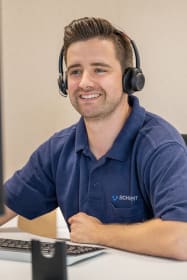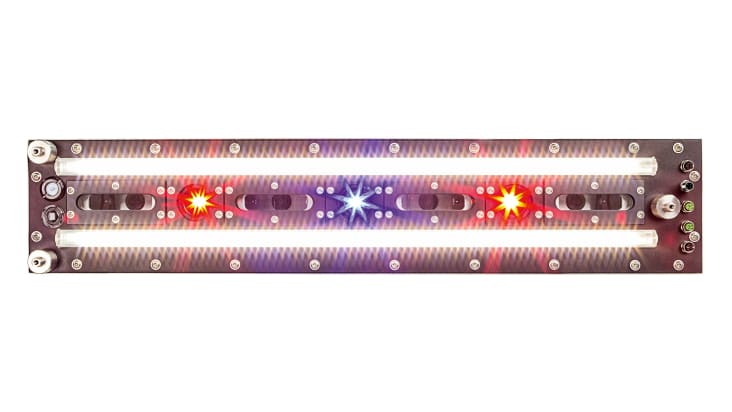Abdelmalek Nasraoui: Angewandte Wissenschaft
When he saw a simulated image in which the centre of gravity and the rotational position of chocolates were marked, he immediately recognised the huge potential of these results. “And it was a turning point for me too,” Nasraoui recalls. He decided to dedicate himself to applied science and moved to Crailsheim to do research on the connection between vision and robotics in a company with 200 employees.
The most recent outcome of this memorable encounter is Schubert’s patented 3D scanner which represents a breakthrough in a highly competitive field – and which so far is unique worldwide. Not only for the packaging industry, but also for Nasraoui personally, it embodies an important milestone along a long road full of challenges. Nasraoui recalls: “As a child, I experienced the war in Algeria. My parents were illiterate, but I had the good fortune of being the only one of eight siblings to have access to advanced schooling. This was only possible with great sacrifices on the part of my parents and my siblings. The Algerian government offered scholarships for gifted high-school students, and initially I applied for the United States. I was accepted, but because we lived in a remote area in the mountains, I didn’t receive the acceptance letter on time. So instead, I went to Germany. During my studies, I was sure that I wanted to work in research and that I would eventually end up in an academic environment. The meeting with Gerhard Schubert abruptly changed my plans. I definitely wanted to accompany the sighted robot, which was being developed as a joint research project between the Karlsruhe Nuclear Research Centre and Schubert, into practice.

A series of extraordinary twists in Nasraoui’s life ultimately led to the creation of image processing as an applied science.




